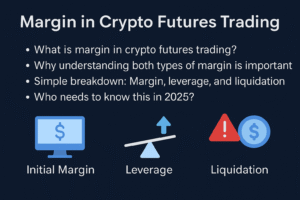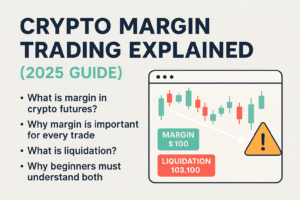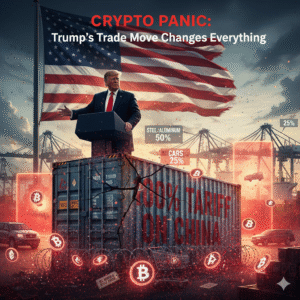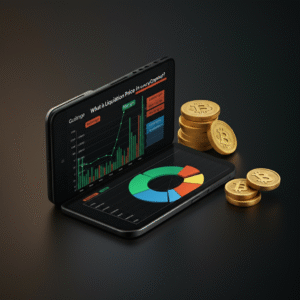Geopolitical events may feel distant, impacting foreign policies and international relations far from your day-to-day reality. But the truth is that the ripple effects of global tensions have a direct and often immediate impact on your wallet.
From higher prices at the pump to shifting food costs, understanding the interplay between geopolitical flashpoints and local economies is critical for making informed decisions about your finances.
This blog explores the connection between global events, such as conflicts or rising tensions, and their everyday implications. We’ll cover major geopolitical hotspots, their influence on energy, food, supply chains, and more, helping you connect the dots between the global stage and your purchases, savings, and financial planning.
Geopolitical Flashpoints in 2025
To grasp the profound effects of geopolitics, it’s important to understand where the tensions lie. Here are some of the most critical flashpoints shaping the global economic landscape today.
1. The South China Sea
The South China Sea has been a source of tension between countries in the region for decades, as multiple nations – including China, Vietnam, Malaysia, and the Philippines – claim ownership over parts of its waters. In recent years, these tensions have escalated as China continues to assert its dominance in the area through militarization and building artificial islands. This dispute not only has significant implications for trade and energy routes but also highlights the larger power struggle between the US and China.
2. Middle East Conflicts
The ongoing conflicts in the Middle East continue to be a major concern for global stability and economic growth. With ongoing civil wars in Syria and Yemen, as well as the long-standing Israeli-Palestinian conflict, there seems to be no end in sight for the region’s turmoil.
The Syrian civil war, which began in 2011, has resulted in hundreds of thousands of deaths and displaced millions of people. The involvement of several regional and global powers has further complicated the situation, with Russia supporting Syrian President Bashar al-Assad while the US and other Western countries support rebel groups.
Similarly, Yemen has been embroiled in a civil war since 2014 between Houthi rebels and government forces backed by Saudi Arabia. This conflict has resulted in a humanitarian crisis and ongoing violence that has not only affected Yemen but also neighboring countries such as Oman and Saudi Arabia.
Impact on Global Politics
The ongoing conflicts in Syria and Yemen have had a significant impact on global politics. These conflicts not only pose a threat to regional stability but also have far-reaching consequences for the international community.
One of the major implications is the rise of extremist groups such as ISIS (Islamic State of Iraq and Syria) in both countries. The power vacuum created by these conflicts has allowed terrorist organizations to gain a foothold and spread their ideology, posing a security threat to the entire world.
3. Russia-Ukraine Conflict
The ongoing war in Ukraine has caused significant disruption in global energy markets and food supply chains. This not only impacts prices in Europe but also leads to ripple effects worldwide as markets adjust to shifting supply and demand dynamics.
4. Climate Change and Global Security
Climate change is increasingly recognized as a critical global security issue. Rising temperatures, extreme weather events, and shifting climate patterns are exacerbating resource scarcity, particularly in water and arable land. These conditions often lead to heightened competition for resources, fueling conflicts in vulnerable regions. For instance, prolonged droughts in parts of Africa and the Middle East have intensified disputes over water access and agricultural viability. Additionally, climate-induced displacement is creating waves of migration, placing additional strain on neighboring regions and countries already grappling with socio-political challenges. Nations worldwide are now being urged to consider climate resilience as a fundamental component of their security agendas to mitigate the cascading effects of environmental instability.
5. Israel-Hamas War
Conflicts in the Middle East increase uncertainty, impacting investor behaviors and the price of crude oil, a key driver of inflation. The ongoing tension not only disrupts regional stability but also poses significant challenges to global energy markets. Supply chain disruptions and heightened geopolitical risks often lead to volatility in commodity prices, influencing economic policies and trade strategies worldwide. Additionally, humanitarian concerns remain at the forefront, with populations in affected areas facing displacement, resource shortages, and threats to safety.
6. South China Sea and Taiwan Strait
The South China Sea and Taiwan Strait remain critical flashpoints in the realm of international relations. Disputes over territorial waters and islands have led to heightened tensions among countries in the region, particularly between China and nations such as Vietnam, the Philippines, and Malaysia. The Taiwan Strait, in particular, has become a focal point for potential conflict, as China’s military maneuvers and assertions of sovereignty over Taiwan draw increased attention from global powers like the United States. These territorial disputes not only threaten maritime security but also have broader implications for global trade, as a significant portion of the world’s shipping passes through these waters. The international community continues to push for diplomacy and adherence to international law to defuse tensions and ensure stability in this vital region.

Energy Markets in Turmoil
Geopolitical conflicts often lead to disruptions in the energy sector, driving up oil and gas prices. For example, Russia’s invasion of Ukraine prompted Europe to reduce its reliance on Russian energy sources, leading to price volatility and higher transportation costs across the globe.
How does this affect everyday consumers?
- Rising Energy Bills: Households face higher costs for heating and electricity, particularly during peak winter months.
- Transportation Costs: Higher oil prices mean more expensive fuel, which directly impacts your commute and the cost of goods transported by road, air, and sea.
Case Study: European Energy Security
Since the Russia-Ukraine conflict began, European nations have invested heavily in alternative energy sources. While these efforts aim to stabilize long-term energy supplies, the immediate costs are being passed on to consumers.
Case Study: European Energy Security
Since the Russia-Ukraine conflict began, European nations have invested heavily in alternative energy sources. While these efforts aim to stabilize long-term energy supplies, the immediate costs are being passed on to consumers. Many countries have accelerated the development of renewable energy infrastructure, such as wind and solar farms, to reduce dependence on Russian gas. Additionally, investments in liquefied natural gas (LNG) terminals and pipelines connecting to non-Russian suppliers have been prioritized. However, these transitions involve significant upfront costs, which have led to higher energy bills for households and industries. Policymakers are also introducing subsidies and financial aid programs to mitigate the impact on vulnerable populations, but balancing economic stability with energy independence remains a major challenge.
Food Security and Price Volatility
Wars and tensions often disrupt agricultural production and exports, leading to shortages and price increases. For instance, Ukraine is one of the world’s largest exporters of wheat and sunflower oil. The war limited its ability to export, leading to price hikes across Asia, Africa, and other global markets.
Impacts on Household Budgets
- Rising Grocery Bills: Families are paying more for basic staples like bread, cereal, and cooking oil.
- Regional Disparities: Countries heavily reliant on food imports, particularly in sub-Saharan Africa, face even steeper challenges.

Supply Chain Disruptions and Consumer Goods
The global supply chain is highly interconnected, meaning geopolitical tensions in one region can create ripple effects worldwide. Disruptions lead to delays, shortages, and higher production costs, all of which are eventually passed on to consumers.
How It Affects You
- Higher Prices: Consumer goods, especially electronics and automobiles, see price hikes due to sourcing delays and increased transportation costs.
- Limited Availability: Items like microchips, essential for modern devices, face shortages driven by tensions in regions like Taiwan.
Businesses are responding by diversifying supply chains and incorporating risk management strategies, but these measures take time and often come with added costs.
Financial Markets and Investment Risks
Periods of geopolitical instability often cause heightened volatility in financial markets. Investors may panic, pulling funds out of stocks, which can lead to market drops.
Currency Fluctuations
Global tensions also affect currency exchange rates. For instance, your purchasing power weakens if your domestic currency loses value against global counterparts.
Long-Term Effects
Historical data suggests that markets tend to recover, but short-term shocks can cause significant financial pain for businesses and individuals. Savvy investors diversify their portfolios to weather such storms.
Market Opportunities
Despite the challenges that arise during periods of global instability, these times can also create unique opportunities for investors and businesses. Sectors such as defense, technology, and renewable energy often experience growth due to increased demand. Similarly, companies offering essential goods and services tend to remain resilient. For individuals, moments of market volatility may provide chances to purchase undervalued assets, positioning themselves for long-term gains once stability returns. Remaining informed and adaptable is key to navigating these dynamic circumstances effectively.

Inflation and Central Bank Responses
Geopolitical disruptions often lead to inflation, as seen with rising energy and food prices. Central banks respond by adjusting monetary policies.
How This Affects Consumers
- Higher Interest Rates: To combat inflation, central banks like the U.S. Federal Reserve increase interest rates, raising borrowing costs for consumers.
- Reduced Spending Power: Higher prices and loan repayments leave less room for discretionary spending, tightening household budgets.
Long-Term Implications
Prolonged periods of high inflation and elevated interest rates can lead to slower economic growth. Consumers may delay large purchases such as homes or vehicles, impacting related industries. Additionally, businesses face higher operational costs, which may lead to reduced investment, layoffs, or price increases to maintain profit margins. Over time, the compounding effects of these challenges can contribute to economic uncertainty and a greater sense of financial instability for households and corporations alike.
Employment and Labor Market Impacts
Geopolitical events can also reshape job markets. Industries tied to energy, manufacturing, and transport often face disruptions, while others, like technology or pharmaceuticals, may see growth.
Workforce Shifts
- Sectors at Risk: Manufacturing and exports-dependent industries may experience layoffs during prolonged global instability.
- Sectors in Demand: Industries such as clean energy often experience increased investment and job opportunities in response to shifting priorities.
Workforce Adaptation
As global dynamics evolve, workers are increasingly required to adapt their skill sets to remain competitive. Upskilling programs and vocational training initiatives are becoming critical, enabling individuals to transition into emerging industries. For example, professionals in traditional energy sectors may find opportunities in renewable energy through specialized training. Similarly, technological advancements drive demand for expertise in fields such as data analysis, software development, and artificial intelligence. This emphasis on lifelong learning underscores the importance of flexibility and resilience in today’s workforce.
The Rise of Cybersecurity Threats
Geopolitics isn’t limited to physical conflicts. Cyber warfare has emerged as a key tool for disrupting economies. Attacks targeting critical infrastructure—notably energy grids, financial institutions, or supply chain systems—can have devastating economic consequences.
Protecting Businesses and Individuals
Governments and corporations are prioritizing cybersecurity investments to mitigate these risks. On an individual level, staying vigilant about online security is increasingly important.
Cybersecurity awareness is not just a responsibility for organizations; individuals must also play an active role in protecting their digital presence. Simple actions such as using strong, unique passwords, enabling two-factor authentication, and avoiding suspicious links can greatly reduce the risk of cyberattacks. Additionally, staying informed about the latest threats and keeping software up-to-date are critical steps in ensuring personal and professional data security. By adopting proactive habits, individuals can contribute to a safer digital environment for everyone.

Staying Ahead of Geopolitical Risks
Understanding the connection between global tensions and your financial well-being is the first step to safeguarding your wallet.
Geopolitical risks, such as trade wars, sanctions, or political instability, can have profound effects on the global economy and individual investments. These events often lead to market volatility, disruptions in supply chains, and fluctuating currency values. To mitigate these risks, staying informed through reliable news sources and keeping a diversified portfolio can provide a buffer against sudden economic shifts. Additionally, working with financial advisors who understand the nuances of geopolitical impacts can help individuals and businesses make informed decisions in uncertain times.
Takeaways for Individuals
- Stay informed about global developments and their economic implications.
- Diversify investments to reduce exposure to volatile markets.
- Budget for rising costs in energy, food, and transport.
Policy Recommendations
Governments need to prioritize energy independence, secure supply chains, and enhance international cooperations to mitigate these impacts.
Prepare for the Future
While the forces of geopolitics can feel overwhelming, knowledge and preparation empower you to make informed decisions. Take action today by staying updated on global developments and diversifying your financial strategies to weather economic uncertainty.
Build Resilience in Uncertain Times
Resilience in the face of uncertainty starts with fostering adaptability and long-term planning. Diversify investments, reduce dependency on single sources for essential resources, and prioritize sustainable practices within both personal and professional domains. Additionally, building strong community networks can provide collective support during challenging periods, enabling shared resources and knowledge. By taking proactive steps today, individuals and organizations can better withstand future disruptions and seize opportunities for growth.
Conclusion
Preparing for uncertainty is not just a strategy for survival; it is a mindset that fosters resilience and growth. By focusing on adaptability, sustainability, and collaboration, individuals and organizations can effectively mitigate risks and turn challenges into opportunities. The future may hold unpredictability, but with proactive measures and strong foundations, thriving in the face of change is within reach.
Frequently Asked Questions (FAQs)
- What is the importance of adaptability during uncertain times?
Adaptability allows individuals and organizations to adjust quickly to changing circumstances, ensuring they can respond effectively to challenges without being overwhelmed.
- How can diversifying investments help during disruptions?
Diversifying investments reduces reliance on a single income stream or asset, thereby minimizing risks and ensuring better financial stability during economic downturns.
- What role does community play in overcoming uncertainty?
Building strong community networks creates avenues for shared resources, collective problem-solving, and emotional support, which are vital during challenging situations.
- Why is sustainability important in preparation for the future?
Sustainability ensures that resources are used efficiently and responsibly, reducing waste and dependency on volatile systems while promoting long-term viability.
- What steps can organizations take to foster resilience?
Organizations can enhance resilience by implementing risk management strategies, encouraging innovation, and maintaining robust communication with teams and stakeholders.
- How does long-term planning safeguard against uncertainty?
Long-term planning helps anticipate potential risks and opportunities, allowing proactive measures to be put in place before challenges arise.
- What are examples of proactive measures to prepare for disruptions?
Examples include creating emergency funds, diversifying supply chains, investing in technology, and regularly updating contingency plans for various scenarios.









